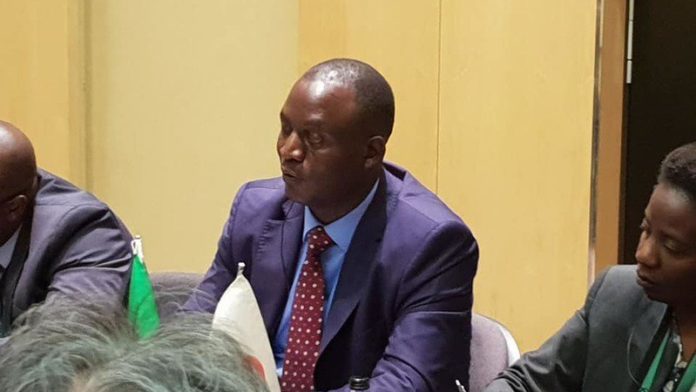
TALKS between the Zambian government and Barrick Gold regarding the future of the Canadian firm’s Lumwana copper/gold mine were said by mines minister, Richard Musukwa to have progressed “extraordinarily well”.
“I met Barrick this morning and it gave us a huge perspective on the future and where we are going,” said Musukwa in an interview with Miningmx. “It gave me a lot of confidence. I was able to talk and engage although there are a few challenges.”
Musukwa’s comments come about a fortnight after Barrick said it would consider selling Lumwana after the Zambian government planned to implement new taxes which include an increase in the mining royalty by 1.5%.
There is also a fourth tier of taxation at 10% in the event the copper price moves through $7,500 per tonne whilst royalties paid were also deemed non-deductible. The fiscal changes have sent shockwaves through the Zambian mining sector.
Musukwa, however, said there was scope for customised taxation as conditions of mining licence issuances. “We will give companies certain conditions when we grant a licence. It is not a situation of one size fits all,” he said. First Quantum Minerals, a Toronto-listed copper miner, said it would retrench 2,500 of its employees as a result of the fiscal alterations, a view it later retracted in favour of continuing discussions with the Zambian government.
“What is coming out is a lot of support, especially when the minister of finance has been meeting mines, one by one,” said Musukwa. “They bring out individual challenges,” he said of the meetings with mining companies.
However, there would be no changes to the overall legislation as mooted. “The industry thrives on stability and consistency. We don’t want to be a flip-flop government. What we have put in place are well thought out numbers and we expect colleagues to profit. Government is ready to engage in dialogue with mining houses,” he said.
There was less sympathy, however, for miners of coloured gemstones, especially Gemfields, a Johannesburg-listed company that is facing an additional 15% levy on revenue.
Sean Gilbertson, CEO of Gemfields, said Zambia risks losing its recently attained status as the world’s largest producer of emeralds by dint of the levy which he says is potentially unsustainable for his and other companies.
“There is no one who pays taxes while smiling,” said Musukwa. “Everyone has to raise a complaint because you are dealing with the comfort zone or the status quo of mining companies. But the philosophy [of the new taxes] is not to kill the industry.
“What our colleagues need to do is to reach down into their profit margins and contribute to Zambia’s economic growth.”
Asked why Pious Kasolo, head of Zambia Copper Consolidated Mines Investments (ZCCM) was dismissed recently, Musukwa replied: “I’m not in a position to comment on the firing of the ZCCM head or why board decided to part company with the CEO. All I can assure you is that the board advised me they had parted company in order to move to another dispensation. That is our position.”











